by Richard van Pelt, WWI Correpsondent
The days headlines from The Daily Capital Journal:
CORRESPONDENT’S EXPERIENCES IN PURSUIT OF NEWS
Polite French Officer Gave Them Quarters Next to Cows Bed Chamber
PROVIDED A GUARD FOR THEIR COMFORT
Then Sent the Whole Party Back to Paris with Escort to Protect Them
TO MAKE DESPERATE ATTEMPT TO CRUSH THE ALLIED ARMIES
Believe Germans Plan to Hurl Reserve Army on the Allied Forces
GERMAN STRENGTH INCREASED 250,000
Allies Claim They Are Meeting With Success in Dislodging Germans
GERMAN FLEET MAY TAKE THE CHANCES OF BIG SEA FIGHT
Success of Submarines May Stir Germans to Risking Big Naval Battle
SUCH A FIGHT WON WOULD DECIDE WAR
British and German Submarines May Have Battle Under the Ocean
GREATEST BATTLE IS BREWING
Germans Will Attempt to Overwhelm and Crush All Resistance
BIGGEST BATTLE OF THE WAR IS PROBABLE
Great Guns Sent to Ostend to Prevent Attack by the Big British Fleet
 Locally, the headline read “Kola Neis Arrives From Old Country.” Kola Neis was a prominent hop grower and a principal of the Salem Brewery Association and he related that conditions in Germany had changed little with the outbreak of the war:
Locally, the headline read “Kola Neis Arrives From Old Country.” Kola Neis was a prominent hop grower and a principal of the Salem Brewery Association and he related that conditions in Germany had changed little with the outbreak of the war:
Well, Kola Neis is back and the country is safe. If any of the warring countries were using dumdum bullets, Kola knows nothing about it for nobody offered him one and if they had he would not have taken it.
Kola was in Germany from the first of May until the 14th of September and he says that in the interior, the towns are as peaceful and serene as they are over here and the only difference that he could note was the presence of soldiers. And as for the shortage of food products and crops in the Fatherland, that is all bosh, for there was plenty to eat, the prices for square meals were not exorbitant, and the stories of suffering have been greatly exaggerated. All the crops of all the countries, so far as he was able to learn, were harvested, with the possible exception of some sections in northern France and Belgium, but even there the greater parts of the crop was taken care of.
He says that all this talk of the mistreatment of American tourists and subjects is purely humbug and that an American citizen, if he wore a small American flag in his buttonhole to distinguish himself from an Englishman, was just as safe and as courteously treated as if he were on his own shores. About the only evidence of war was that Kola saw was the passing of prisoners and wounded soldiers through the country on the railroads, and none but the best of feeling existed as the trains bearing wounded soldiers, both German and of allied armies, were met by the people load down with flowers, fruits and all kinds of knick-knacks and delicacies. Neither is there any truth in the reports that German citizens of America or any other foreign country were being pressed into military service, as Germany had plenty of soldiers of its own and there was no nee of drafting up to the time he left.
Attempting levity in the time of war, the Capital Journal editor comments:
The Belgian government, like Noah’s dove, is having difficulty in finding a resting place. It reminds one of our own war, when a certain Union cavalry general wrote a series of articles for Harpers, which were dated from “Headquarters in the Saddle.” This caused some carping critic to remark that you “could not expect much from a general who kept his headquarters where his hindquarters should be.”



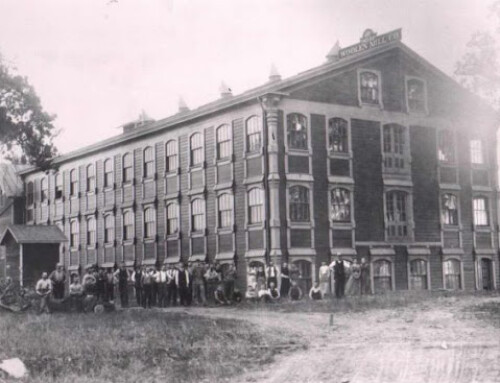
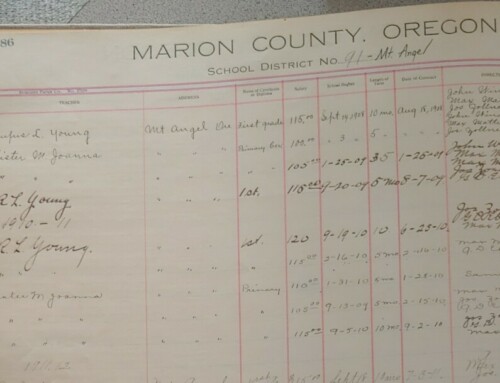
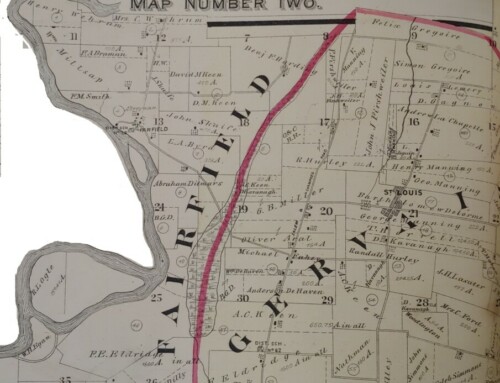
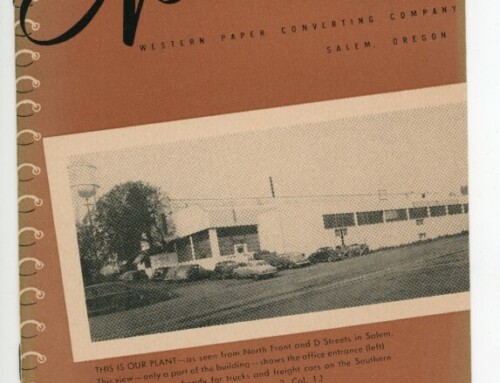
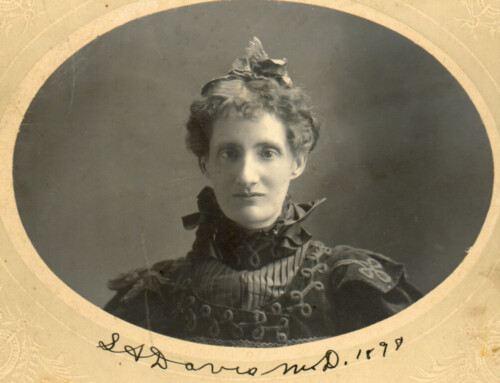
Leave A Comment